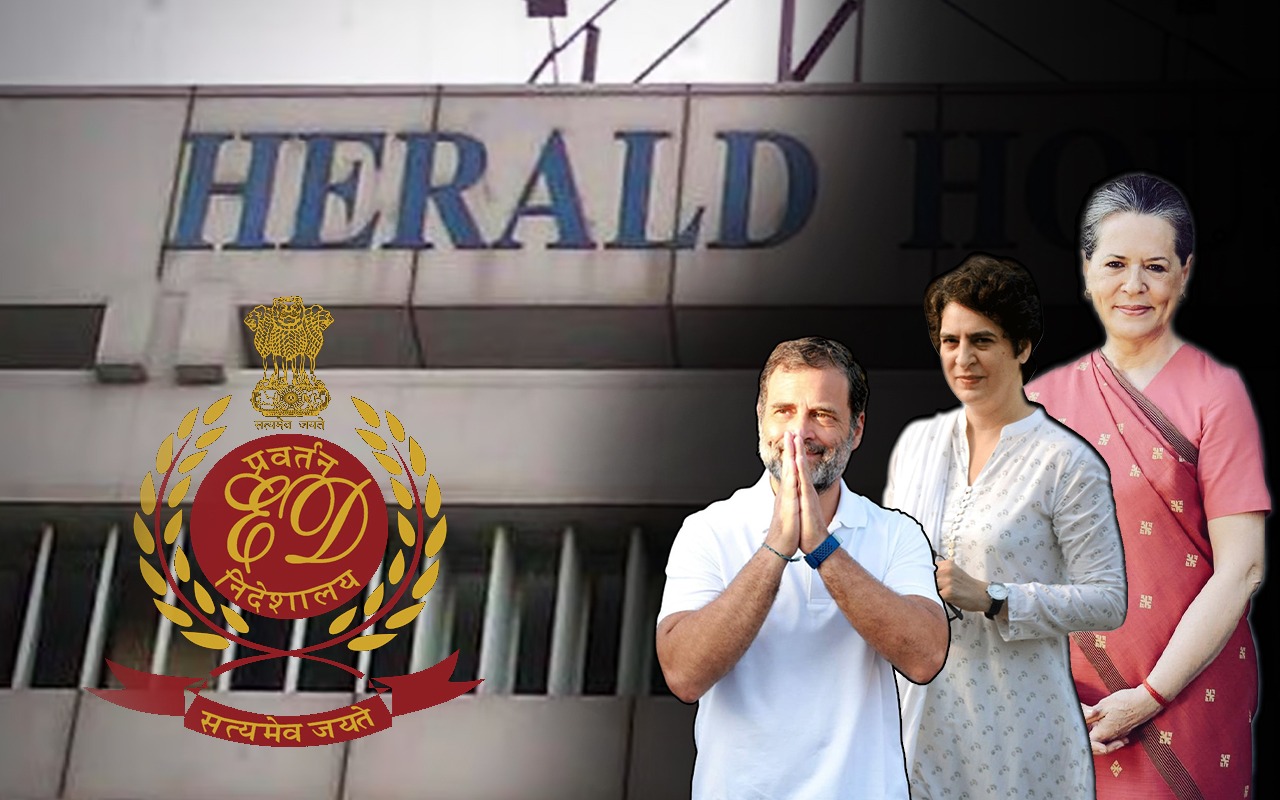The Enforcement Directorate’s recent action in the National Herald case, attaching properties worth Rs. 752 crores belonging to Young Indian, a company associated with Congress leaders Sonia Gandhi and Rahul Gandhi, has once again brought the spotlight on the issue of political funding in India. The case involves alleged money laundering related to the acquisition of assets from Associated Journals Ltd., the publisher of the National Herald newspaper, by Young Indian. This is not an isolated incident, as there have been several other cases of corruption, fraud and influence-peddling involving political parties and their funding sources.
The current electoral process of India, as the world’s largest democracy, is burdened with challenges such as voter fraud, criminalization of politics, and the high cost of campaigns. Recently, there has been a seven-times increase in the seizure of currency in poll-bound states in India. This means that India needs electoral reform, party fund reform, and a reduction in the cost of holding elections. One of the key areas that need urgent attention is the lack of transparency and accountability in political funding, especially after the introduction of electoral bonds in 2017, which allow anonymous donations to political parties through the State Bank of India. This creates a risk of undue influence of corporate and foreign interests on policy-making, as well as corruption and money laundering.
Another problem is the high and rising cost of contesting elections, which creates a barrier to entry for candidates from diverse backgrounds and encourages the use of illicit and unaccounted funds or ‘black money’ to finance campaigns. The violation and circumvention of the legal limits and regulations on election expenditure by political parties and candidates erodes the level playing field and distorts the electoral outcomes. The Election Commission of India (ECI) has the power to monitor and enforce the expenditure limits, but it faces several challenges, such as the lack of manpower, resources and legal authority to impose effective sanctions.
A third issue is the inadequacy and inefficiency of the existing mechanisms for public funding of political parties and candidates, which fail to provide sufficient and equitable support to all parties and candidates and to incentivize compliance with the disclosure and expenditure norms. These problems have serious implications for the health and functioning of India’s democracy, as they affect the representation, participation and accountability of the political system. Therefore, there is an urgent need for comprehensive and systemic reforms in the areas of political funding, election expenditure and public funding, to ensure that elections in India are free, fair and inclusive.
Some of the possible reforms that can be considered are firstly, abolishing the electoral bond scheme and restoring the full disclosure of the identity and amount of donations to political parties and candidates, as per the recommendations of the ECI and various civil society groups. This would enhance the transparency and accountability of political funding and reduce the scope for corruption and influence-peddling.
Another possible reform would be introducing partial state funding of political parties and candidates, in the form of direct cash transfers or indirect benefits, such as tax exemptions, free access to public facilities and media, and provision of electoral materials and services. This would reduce the dependence of parties and candidates on private and illicit sources of funding, and enable them to contest elections on a more equal footing.
Also, strengthening the ECI’s capacity and authority to monitor and regulate the election expenditure, by providing adequate manpower, resources and legal powers is one more step towards reform in political part funding and reduction in the cost of holding elections. This would ensure the effective implementation and enforcement of the expenditure limits and regulations, and deter the violators with appropriate penalties.
These reforms would create a level playing field for all parties and candidates, by ensuring fair and equal access to media, public platforms and facilities, and by curbing the misuse of official machinery and resources by the ruling parties. This would prevent the distortion of the electoral process by the incumbency advantage or the money power. These reforms, if implemented, would go a long way in improving the quality and integrity of India’s electoral system, and in turn, of its democracy. They would also enhance the trust and confidence of the citizens in the political system, and encourage them to participate more actively and responsibly in the electoral process.












